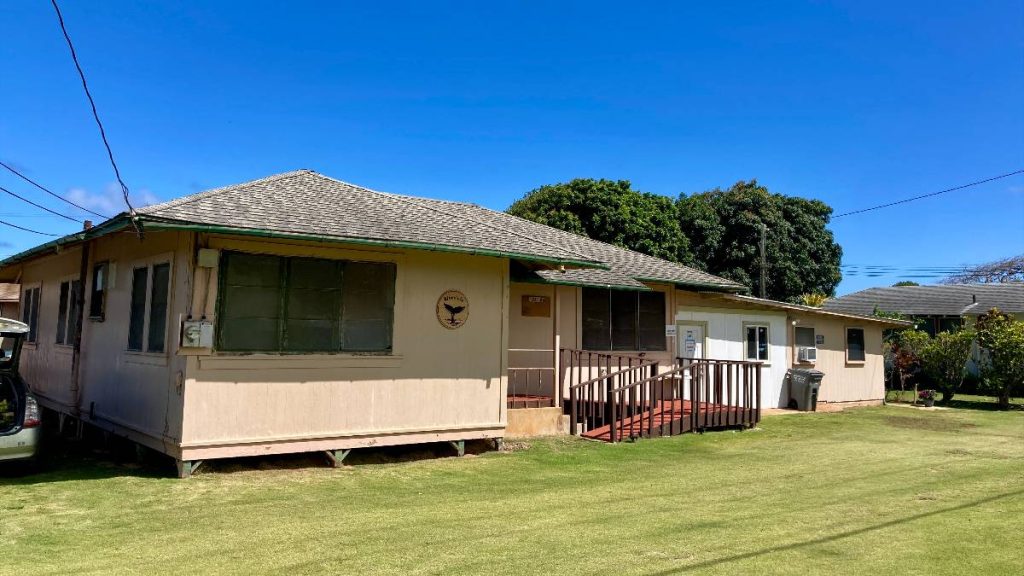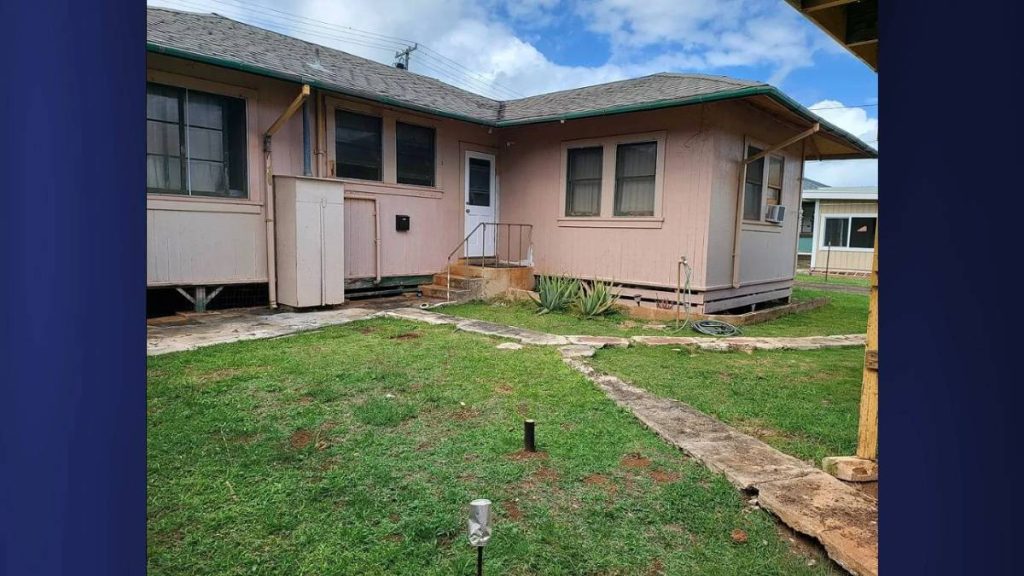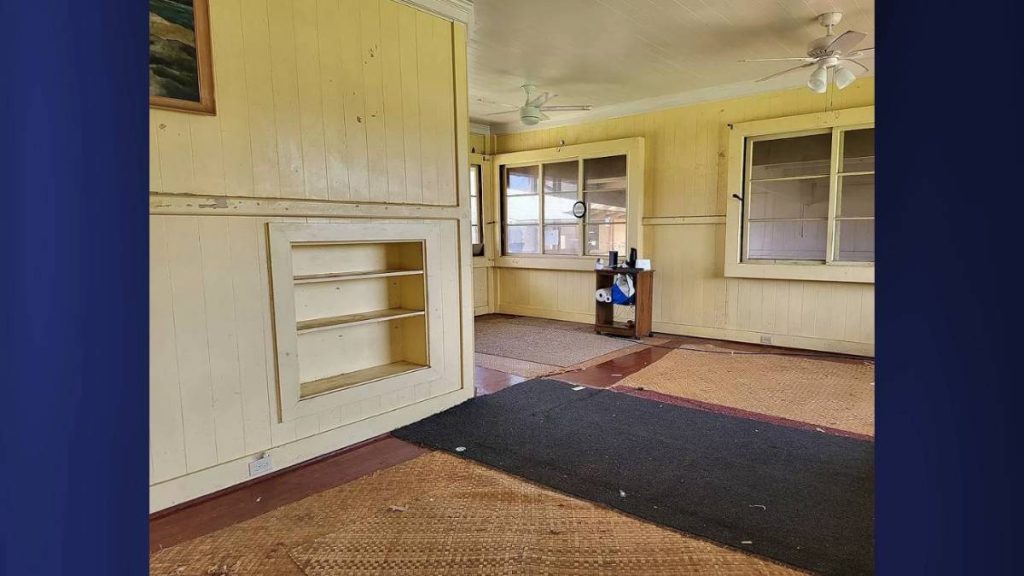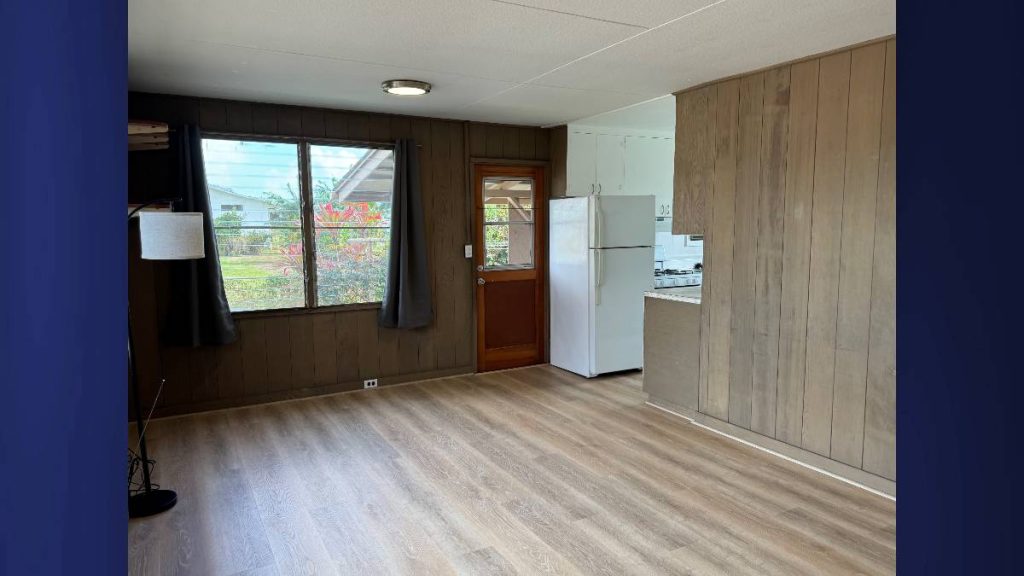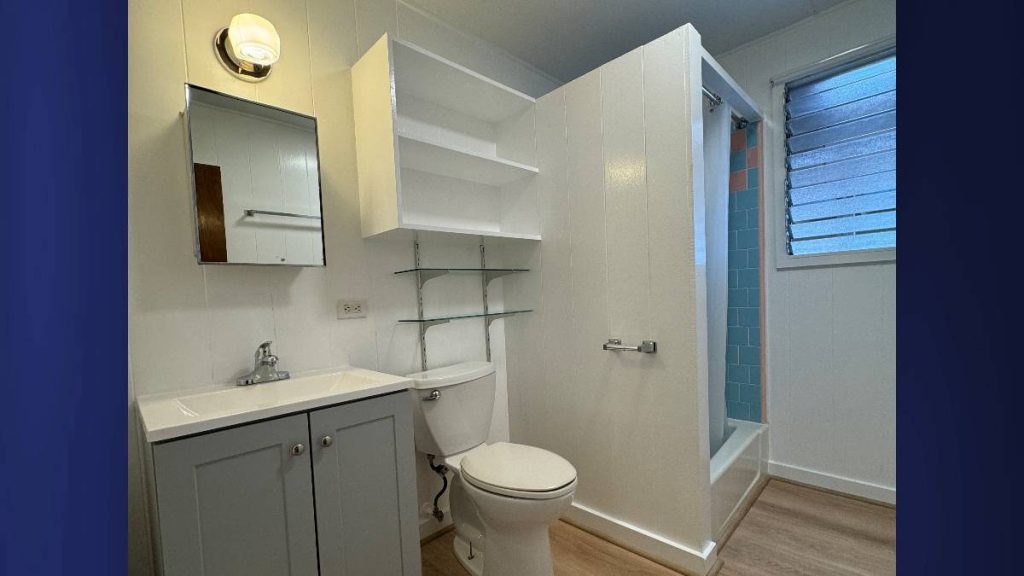Deprecated: stripslashes(): Passing null to parameter #1 ($string) of type string is deprecated in /mnt/efs/html/wp-content/plugins/template-scripts/src/AuthorBios/Frontend.php on line 129
YWCA Kaua‘i’s Wiwo‘ole Project to house domestic violence, sexual assault survivors
YWCA Kaua‘i has launched the Wiwo‘ole Project – six “bridge housing” units for survivors of domestic violence and sexual assault located next-door to the nonprofit organization’s Līhu‘e offices.
The dwellings include several two-bedroom and studio apartments located behind a larger three-bedroom house facing ʻElua Street, a residential thoroughfare within sight of the State Office Building.

“This is tailored to those folks who are in the process of making some life changes, whether they’re survivors of domestic violence or sexual assault, and they need to have different living arrangements,” said Renaé Hamilton-Cambeilh, executive director of YWCA Kaua‘i. “It’s very difficult to do here in a short amount of time.”
YWCA Kaua‘i is the primary provider of domestic violence and sexual assault services on the Garden Isle, receiving over 800 calls to its 24-hour hotline per year.
The nonprofit already operates the Family Violence Shelter, a residence in a confidential location open to all victims and their children, including tourists. However, shelter occupants may only stay for a maximum period of 90 to 120 days, barring extensions granted under certain circumstances.
Victims with little or no financial resources find it difficult to find a long-term housing solution while staying at the Family Violence Shelter. Median rent on Kaua‘i – an island within a state whose governor has declared an affordable housing emergency – is $2,607 for a two-bedroom apartment, according to USHousingData.com. Zillow puts the median sale price of a Kaua‘i home at over $1 million.
Finding money for a home may be further complicated by financial abuse – the draining of a joint bank account, for example – and newly incurred childcare, medical and legal fees.
“Trying to find housing within 90 days or 120 days is a huge barrier … Because they can’t stay forever if they’ve been at the shelter, right? Just per our contract,” said Hamilton-Cambeilh.
The Family Violence Shelter contains 16 beds, but often sleeps above that number: Additional residents rest on couches or futons placed on the floor. More than 120 individuals – 66 women, six men and 49 children – have passed through the shelter over the past nine months.
“We have seen a pattern of people having to stay longer … We don’t turn people away, but at the same time, we need to be able to have capacity for new people to come in who are in dangerous situations,” said Hamilton-Cambeilh. “So what happens? Do they then become houseless and live out of their car, if they don’t have a friend or family member they can move in with? It may feel like the only option is to return to an abusive situation.”
The Wiwo‘ole (“courage”) Project aims to address this problem by filling the gap between immediate needs resolved by the Family Violence Shelter and the obtainment of long-term housing.
“Kaua‘i has a housing crisis … Having available units for people to move into straight out of the shelter can create a better sense of stability for our residents and clients,” said Shelter Director Emma White. “This is a really exciting expansion of our programming. We are so excited and happy and proud to be able to offer stable housing to our clients on Kaua‘i.”
Wiwo‘ole Project residents will be charged nominal rent with rates determined by the size of the dwelling occupied. Proximity to the YWCA Kaua‘i administrative building and Women’s Center provides easy access to services like clinical counseling, crisis intervention, financial empowerment and more. In addition, YWCA Kaua‘i intends to provide the Wiwo‘ole Project with its own case management and keiki programs.
The Wiwo‘ole Project’s two-bedroom units are already prepared for occupancy: The property’s first resident moved into one this past month. The studios will be complete by mid-May, while no date of completion has been set for the main house, which requires more renovation.

Marjorie Bennett, a YWCA Kaua‘i volunteer for the past 15 years, is the renovation manager of the Wiwo‘ole Project.
“This property … It’s beautiful,” she said. “Sure, it’s never-ending deferred maintenance, but the bones are just gorgeous.”
According to Bennett, the Wiwo‘ole Project property was acquired in 1947 by a single mother who purchased it from the Līhu‘e Plantation Company for $1,050. Her descendants recently sold the property to unnamed supporters of YWCA Kaua‘i for $1.4 million; the nonprofit is now leasing the site with the option to buy within three years.
Bennett’s renovation plans are not relegated to buildings. She plans on landscaping, too.
“We had a storage shed back here that we demoed down when they were doing the roof,” she said while surveying the rear of the property. “It made this little yard bigger … We’re going to try to make a healing environment for everybody who’s here and get some white hibiscus and gardenias in.”
Hamilton-Cambeilh described Garden Isle culture as a double-edged sword, in the context of domestic violence and sexual assault.
“There is such strength and support in our small, tight-knit, sense of ‘ohana and aloha on Kaua‘i. At the same time, that can be difficult with these situations,” she explained. “You may not be believed because Auntie thinks that couldn’t happen, or Grandpa doesn’t. Where do you go if you share that same extended family and that support?”
For some, the Wiwo‘ole Project may now be the answer to that question.
For more information about the Wiwo‘ole Project, including donation and wishlist information, click here. The Hawai‘i Community Foundation through its Kōkua Fund will match donations up to $100,000.
To contact the YWCA Kaua‘i 24-hour crisis hotline, dial 808-245-6362. The nonprofit’s website also includes an online chat function. If you are in immediate danger, call 911.
Sponsored Content
Notice: Function the_widget was called incorrectly. Widgets need to be registered using
register_widget(), before they can be displayed. Please see Debugging in WordPress for more information. (This message was added in version 4.9.0.) in /mnt/efs/html/wp-includes/functions.php on line 6114


